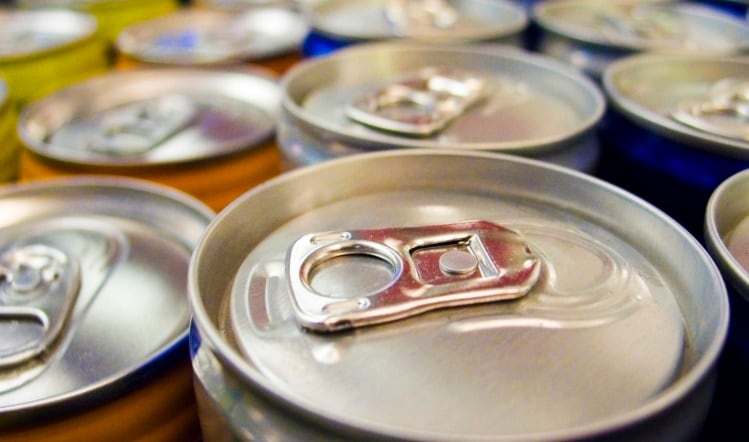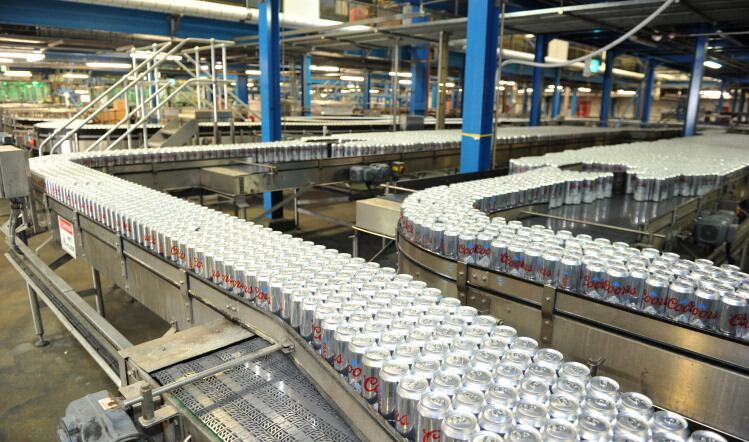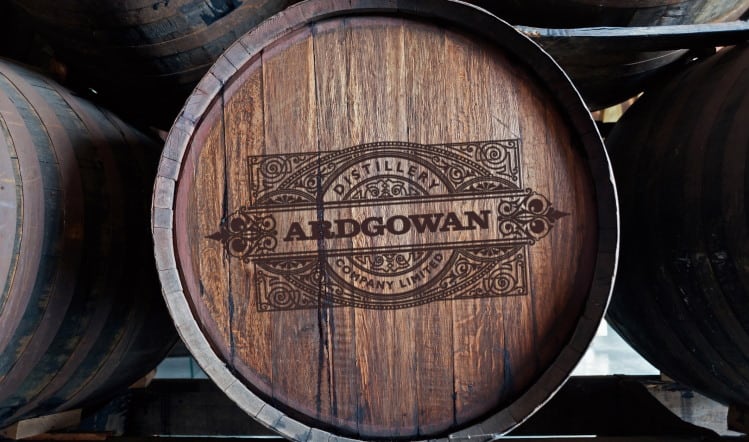From ready-to-drink offerings to premium and craft spirits, the drinks industry has identified a shift in consumer tastes and has rapidly adapted to meet them.
The pandemic has had an undeniable effect on the on-trade. Britvic reports 449.3m litres of lost soft drink sales in the licensed sector over the past year, according to its latest Soft Drinks Review, which was published in May.
In the year to 26 December 2020, soft drinks in the sector delivered just 39.5% of the value sales and 39.4% of the volume sales achieved in 2019, according to the report.
But while out of home options have seen a massive decline, take home and larger format soft drinks fared much better, reaching a third of soft drinks sales and growing by 19% (+£117.9m). As a result, the drinks industry has identified big opportunities in the soft drinks sector, especially in the low- and no-alcohol category.
Britvic: Top Soft drinks trends for 2021
- Licensed trade: low and no-alcohol (including mocktails and mixers)
- Foodservice and convenience: Health & wellness, including functional wellness
- Convenience retail: Energy, in-home refreshment and socialising, hydration
Adam Russell, Britvic director of foodservice and licensed, said: “Based on the increase in UK adults looking for low and no alcohol alternatives, it is vital that licensed operators take note and put plans in place to cater for this demand.
“While a strong carbonates range from well-known brands is a good starting point, there is a bigger opportunity to go after in terms of wider soft drinks and the creation of mocktails – an alternative that attracts over eight million consumers each year.
Solo mixers
“Consumption of mixers on their own, rather than with spirits, is also growing and as guests seek new experiences, flavoured tonics have an important role, contributing to category growth and offering additional opportunities for solo consumption alongside mixed drinks.”
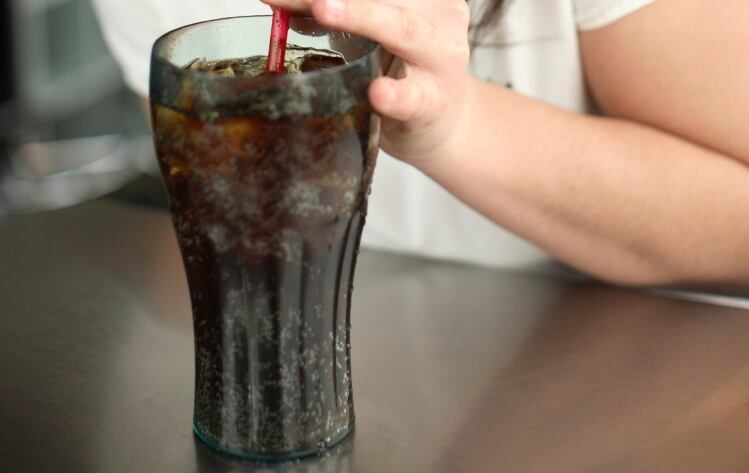
Leading the charge in the world of low- and no-alcohol drinks, small producers are often more free to innovate in a way that larger businesses are not.
Nine Elms has grown the profile of its non-alcoholic wine replacer No.18 (it was in Esquire’s 2021 best non-alcoholic drinks list). James Morgan, drinks consultant for the company argues innovation does not just come from new ingredients and production methods.
“Where larger producers are struggling, smaller producers like have had success because they tackled the problem from a blank page,” Morgan explained.
“It's not simply a matter of chucking in a bit of this and a pinch of that, and masking any jarring notes with flavours. Achieving good results requires a carefully crafted process.”
Aside from a growing appetite for low-to-no alcohol products, health and wellness is another key trend identified by Britvic among others. The importance of a healthy immune system during the pandemic has undoubtedly raised consumer consciousness in this area.
Processors such as Kallo Foods Ltd, which trades as Ecotone UK, producer of the Whole Earth Foods range’, have benefited from the largely retail consumer base for healthier beverages. Whole Earth Foods’s full range of sparkling soft drinks are stocked in health food stores, which have remained open as an essential service during lockdown.
Direct-to-consumer boost
“We have also experienced consistent sales direct-to-consumer via the wholeearthfoods.com website, as customers stocked up on their favourite beverages delivered to their door,” said Whole Earth marketing and category director Bryan Martins.
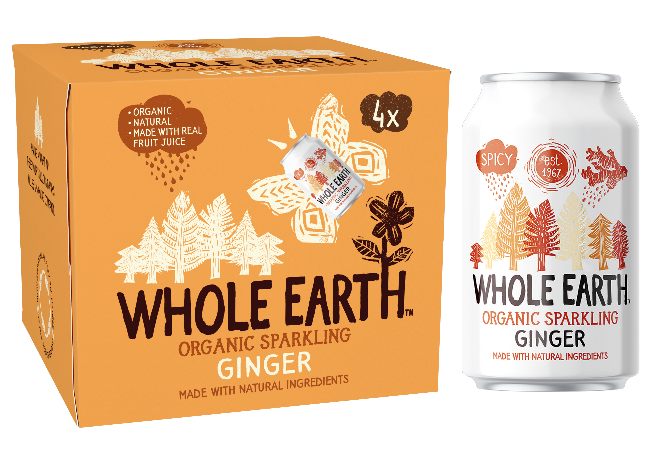
“However, with the foodservice sector set to reopen, we are looking to support those looking to serve a natural and organic option to health-conscious customers that are also environmentally aware.
“Picnic occasions will rise as people socialise outdoors again. Our convenient, single-can servings can help retailers to maximise opportunities with this growing audience of alfresco diners.”
Outside of the world of soft drinks, demand has continued to grow for craft alcoholic drinks, evident by the number of investments in craft breweries over the past year.
This has included cannabidiol (CBD) craft brewer Cannabrew, which smashed its crowdfunding target by raising £200,000 in less than 24 hours and Fourpure Brewing, which completed a £2.5m expansion of its Bermondsey base in London.
As the popularity of craft beers grows, so does the popularity of craft spirits. With smaller brewers and distillers working to bring new innovations in the world of drinks, more focus has been put on introducing new ingredients and production methods not typically seen in the UK.
One such producer is Skylark Spirits, who has worked with Rhum Damoiseau to bring its Arrangé Pink Guava, an Agricole-style rum, to the UK.
Taste of the exotic
Arrangé Pink Guava caters to demands for more exotic flavours in spirits by introducing a novel way of introducing the Guadeloupean ingredient – Guava – to the drink, which is hand cut and hand bottled. According to Skylark, this kind of craft spirit with real fruit in the bottle is new to the UK.
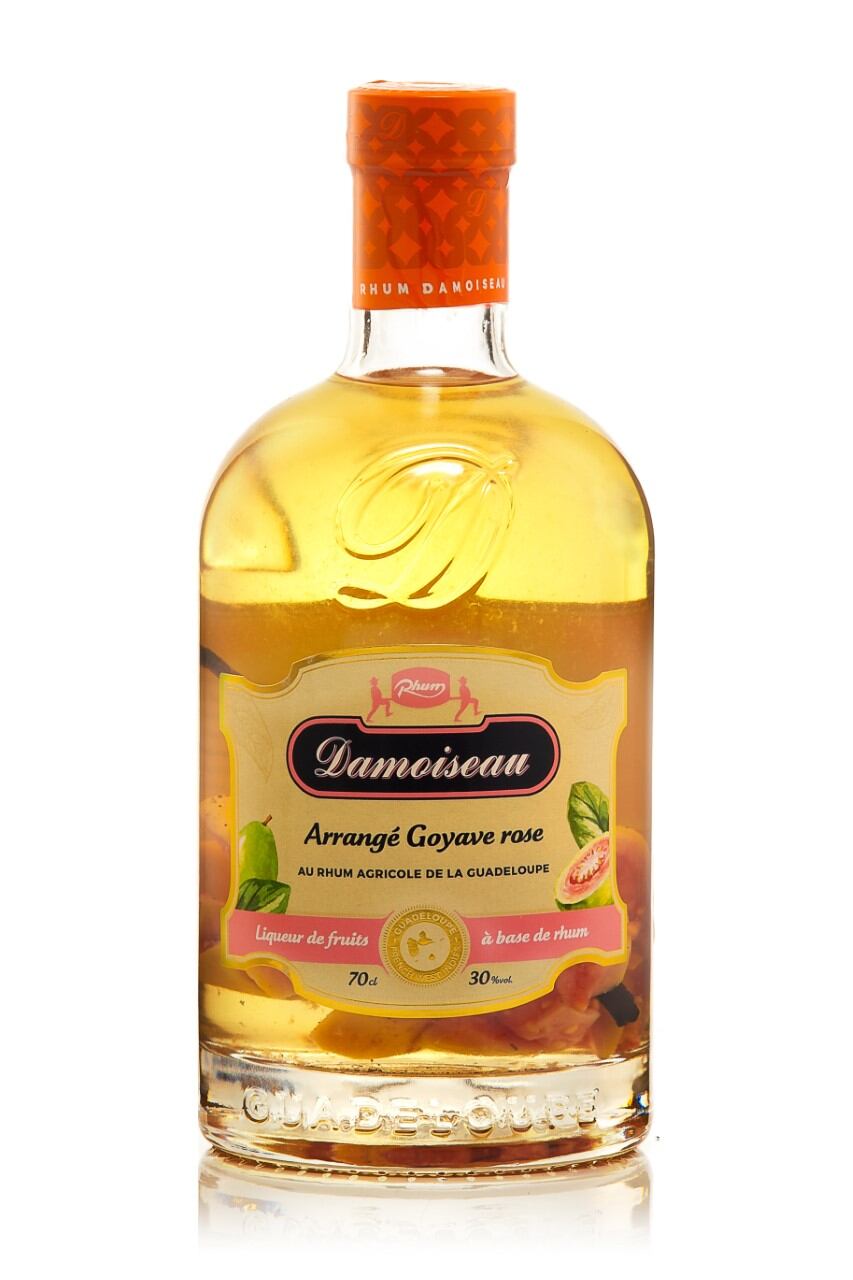
Indy Anand, director of Skylark Spirits, said: “We are also seeing a shift in trends in rum here in the UK. There’s been a huge momentum in education over the course of the past year, and a big part of lockdown for many consumers.
“As people were spending more time at home, we found that they were using the time to explore the rum category to understand exactly what they were drinking and naturally, this led to many discovering new products.”
With consumers becoming more adventurous with their drinks choices during lockdown, Skylark has been able to showcase different styles of rum to the UK audience. This includes the sugar cane juice rum production style not universally known here.
Alcoholic drinks producers have also been active in the ready-to-drink (RTD) sphere. Spurred by the rise in home drinking thanks to the closure of foodservice and hospitality venues, manufacturers have invested heavily in this category.
The past month has seen Molson Coors Beverage Company investing £25m in a new hard seltzer canning line and upgrades to its beer and cider packaging facilities at its Burton-upon-Trent brewery.
Ready-to-drink on the rise
Molson Coors Western Europe Managing director Phil Whitehead said: “The hard seltzer and ready-to-drink (RTD) categories present a huge opportunity for growth.
“The RTD category is the fastest growing in alcohol globally and, while it’s early days, we’re seeing strong indications that hard seltzers will prove as popular in Western Europe as they have in the US.”
It’s clear the restrictions placed on the Great British public in the past 15 months have greatly influenced the direction beverage suppliers have taken and consumer tastes have morphed in tandem. Forced to stay at home on a Friday night, it’s little wonder consumers have enthusiastically taken to RTD and take-home offerings.
This inability to visit a favourite bar or venture to familiar restaurants and pubs has sparked a need to introduce something new and exciting into the everyday monotony of living in lockdown. The question that remains is will this momentum keep up now restrictions have begun to be lifted?
Will the UK completely return to the way it was before the pandemic, or has the public got a taste for ‘the new normal’ and will their drinks tastes change with it?
Müller launches its first kefir product
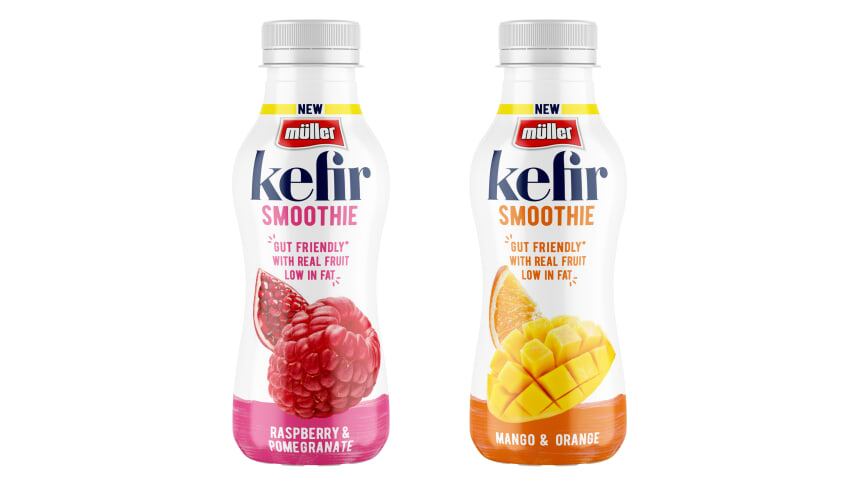
Dairy firm Müller has launched its first ever kefir product in a bid to capitalise on the growing market for fermented drinks – up 24% in 2021, according to Nielsen.
The Müller Kefir Smoothie It will be available in Tesco, Sainsbury’s and Spar stores from this month in two 312ml variants: Raspberry & Pomegranate and Mango & Orange. It is due to enter Asda stores in August, and Morrisons outlets in October.
Michael Inpong, strategy and marketing director at Müller Yogurt & Desserts says kefir drinks ticks all the right boxes for consumers looking for healthier options. But he notes the lack of variety when it comes to choices of flavour.
“It didn’t have broad appeal, and that’s the opportunity,” he explains. “As we look to grow our brand into other parts of the category, we believe we have found a sweet spot to unlock interest from consumers who perhaps haven’t tried kefir before.
“Shoppers know that Müller products are guaranteed to taste great. So when you add a gut friendly proposition and a multi-million pound social and PR marketing campaign, then it is a product launch that the whole supply chain can be excited about.”
Meeting rising demand for functional beverages
Johan Cerstiaens, commercial director at fruit and vegetable ingredients firm SVZ, highlighted the global changes behaviours and habits in the past 18 months and their relation to food and drink.
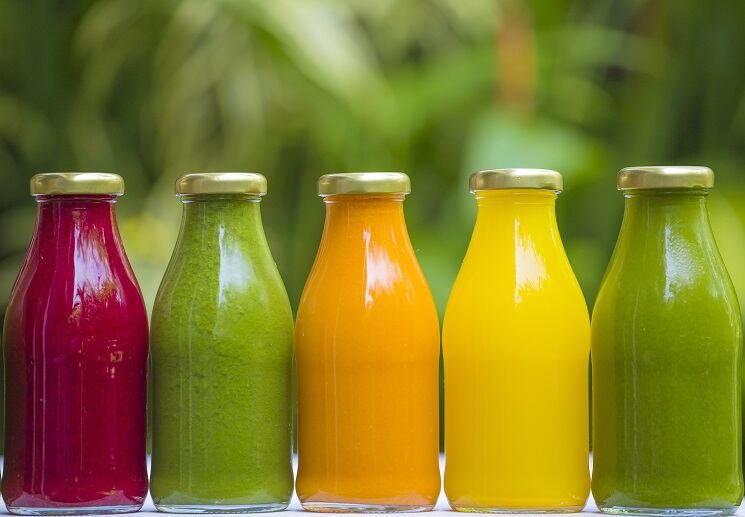
In response to the COVID-19 pandemic, more attention than ever before has been placed on feeding both bodies and minds with nutritious, high-quality ingredients that can optimise health and wellbeing.
“As a fruit and vegetable ingredient supplier, we have seen a pronounced increase in demand for functional, healthy ingredients that can elevate a tasty drink to one that also offers consumers protection for their physical and mental health,” said Cerstiaens.
“A recent report found that immunity and general prevention were among the top reasons for consumer use of functional foods, and we are seeing this demand in the popularity of antioxidant-rich fruits such as elderberry, which has been touted as an effective combatant against symptoms of flus and viruses, and red beet and spinach, popular for their immune-boosting halo.”
The popularity of fermented beverages was also on the rise, boosted by an increased awareness of fermented ingredients’ health credentials and their potential to support digestive health, Cerstiaens continued.
“NPD teams are seeking fermented fruits and vegetables to add to their drinks that don’t compromise on flavour,” he added. “SVZ’s new red beet and carrot ingredients are one such choice – our natural fermentation process means that there is no need for citric acid, resulting in a long-lasting, mild taste that is perceived as less sour or acidic compared to traditional ingredients.
“As a result of the pandemic and continued social distancing, many consumers are experiencing heightened stress, anxiety and low mood. As a result, we are seeing consumers now looking for beverage products that are associated with promoting mental and emotional wellbeing – 60% of Europeans, in fact, are seeking out mood-boosting foods and beverages as a result of COVID-19.”


